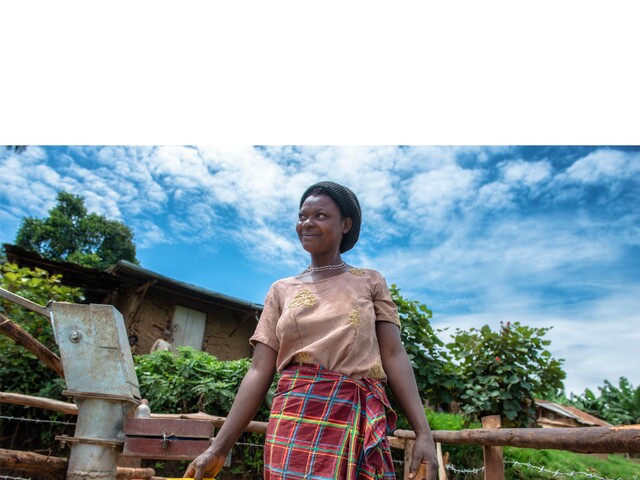
Explore our pages
Narrow down your search by using the filters. Dive deeper using advanced search.
Please find below your results. You can filter results or use our Resources: Advanced Search facility.
Is finance a red herring and what is "Rosenboom's law on pilots"? Learn more from an IRC friend for over 30 years. Read more...
Providing water, sanitation and hygiene services that last forever for everyone, is all about systems. Read more...
IRC has compiled a growing repository of tools and guidance for strengthening WASH service delivery. Read more...
Read IRC's literature review on approaches to driving whole system change in the effort to achieve sustainable water services for everyone. Read more...
Harold Lockwood, giving a testimony to Ton's life at the USAID Co-creation workshop in Washington D.C. Harold and Ton got to know each other since the 1999s early 2000, both forming part of the Thematic Group on Scaling-Up Community Management for Rural Water Supply, and worked together off and on, ever since.
Read more...From service delivery approaches to costing studies. IRC posters presented at the 2015 UNC Water and Health Conference in Chapel Hill, USA. Read more...
The domain of inquiry of this review is the rural water sector in low- and middle-income countries. Read more...
IRC is using Qualitative Document Analysis (QDA) as a tool to measure change in the WASH sector. Read more...
Development partners are giving more attention to professionalisation of community management, recognition of alternative service provider options... Read more...
Report of the fifth in the series of WASH Sustainability Forums which was held on June 30th and July 1st at the RAI in Amsterdam, The Netherlands... Read more...
Over the years, IRC's focus has evolved from supporting community management, to working on a 'whole system' approach to sector change. In this second blog in our series on a learning and adaptive sector we chart IRC's evolution and explore the central role of collective learning for delivering... Read more...
If you could start from scratch and design a new WASH sustainability tool, what would it look like? Participants from the 2014 WASH Sustainability Forum share their ideas on the principles of their ideal WASH sustainability tool. The 2014 WASH Sustainability Forum brought together over 150 participants from nearly 30 countries to discuss concrete approaches to Water, Sanitation and Hygiene (WASH) Sustainability. The Forum took place in Amsterdam, on 30 June and 1 July.
Read more...The room is packed and there is a lot of positive energy in the session on Innovations in Sustainability for Water and Sanitation Services at Stockholm World Water Week. Read more...
The capacity to continuously learn and adapt is critical for dealing with complex challenges and future uncertainties. In this first blog in a series about 'a learning and adaptive sector', we discuss why learning is central to achieving water, sanitation and hygiene (WASH) services for life. Read more...
There are no one-size-fits-all models for change. Within the triple-S project a number of key actions in the shift towards sustainable delivery of... Read more...
There are a range of sustainability tools for water. However tools alone do not automatically mean that services will improve, especially for the poorest and most vulnerable. Read more...
Monday marked the start of the 5th WASH Sustainability Forum. Here's my take on discussions on tools for making investments in sanitation have lasting results. Read more...
IRC's tools for monitoring change at the 2014 WASH Sustainability Forum. Read more...
Only three tools in the Triple-S mapping of Water, Sanitation, and Hygiene Sustainability Tools were developed with government entities. Read more...